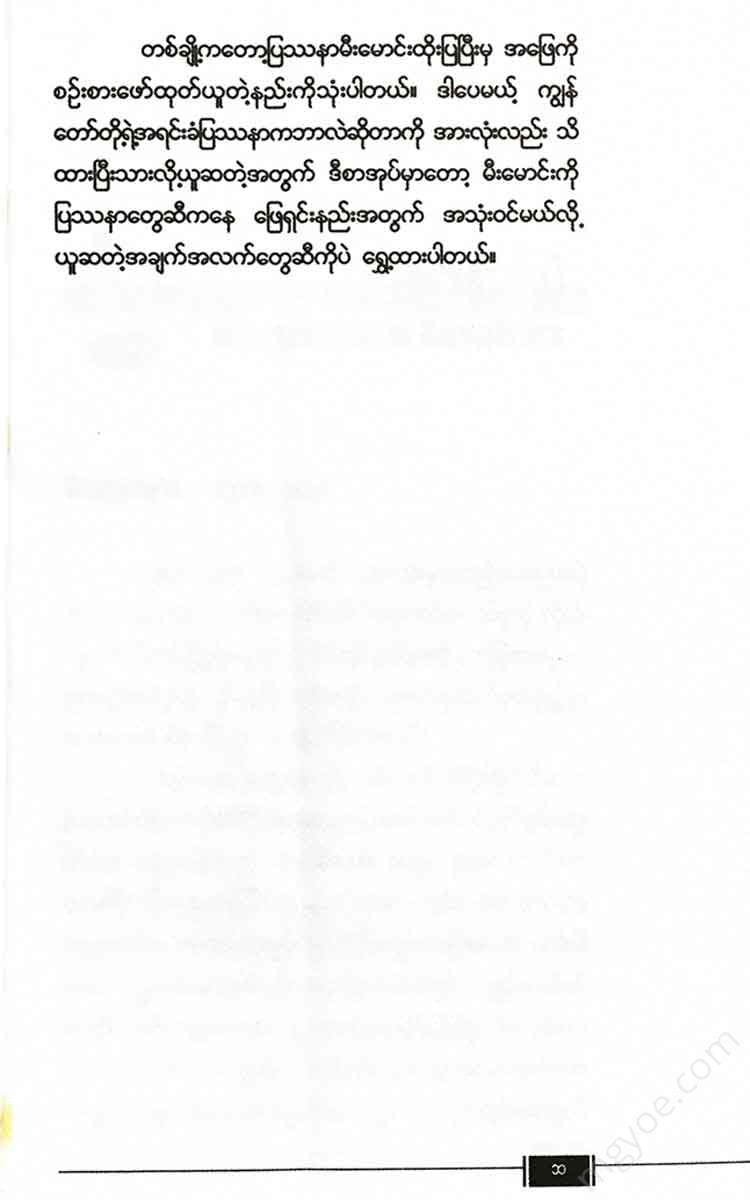Other Websites
Nai Ye Kyaw - International Music Movement
Nai Ye Kyaw - International Music Movement
Couldn't load pickup availability
Copyright - What is it?
Copyright, as everyone in Myanmar understands it, is a type of property right that is legally defined so that you have full ownership of a work you have created (so that others cannot copy or steal it for free).
The rest of the technology is called patentright, and the art is called copyright. The US Copyright Act, which was enacted in the United States in 1798, is considered the oldest copyright law in the world. In legal terms, all the music we create is considered “intellectual property.” If a person writes a song and does not register it with the copyright office, the law states that the songwriter automatically owns the copyright to the song. Today, copyright laws are in place in almost every country, and the terms vary slightly from country to country. However, the same thing is that copyright law protects the music you create from being illegally copied, reproduced, or performed in public by others.
Although the figures may vary slightly, the international standards for copyright law definitions are the same. A songwriter's copyright begins when he or she writes a song. You don't even have to go to the office to apply for a copyright, and you don't even have to register it. However, since copyright registration is the only "proof" that the song is his or her own, almost all songwriters apply for copyright. Whether or not someone else has licensed the song, filing a copyright application is the most reliable proof. Internationally, most songwriters prefer to submit their songs to an intermediary called a publishing company, which handles all the necessary copyright matters for a long time.
How long can a copyright last? Under US copyright law, a copyright is owned by the creator of a piece of music for the life of the creator plus 70 years after his death. After the composer dies, his family can continue to own the copyright. Under US law, if a composer dies in 2010, his family can continue to own the copyright to all of his songs until 2080. In a place like the US, where a single hit song can earn more than enough money to last a lifetime, the benefits to the copyright holder are enormous.
Copyright type
The 1976 US Copyright Act defines six types of copyrights. I think they are among the things that should be considered, so I'll give you an example.
1. Recording and copying music
The author of the song has the right to copy or record a song. The person who makes a recording of a song has the right to copy the recorded creation.
2. Copyright
The songwriter must have the right to distribute his or her song or album. The person who makes the recording has the right to distribute only the recorded creation.
3. Copyright of derivative works
Only the songwriter has the right to reproduce a song (for example, add lyrics, edit, record a new song), etc. The songwriter has the right to reproduce not only his/her song but also the sound recording.
4. Performing in public
Public performance right refers to the right to perform a song in public, not just a sound recording. Public performance includes performing a song in public, whether by an individual or a group, playing a recorded song on a loudspeaker, or broadcasting it on the radio. A songwriter has the right to perform his song in public and to collect royalties if someone else performs his song.
A Song
A "song" is a melody with chords.
The accompanying text is interpreted as
Note.
Only "songs" can be registered for public performance, but "sound recordings" cannot. Therefore, a band only receives royalties for their own performances and does not receive additional royalties for performances by others or radio broadcasts.
Broadcasting entertainment with digital audio
This only applies to Internet-based and Internet-based satellite radio stations. It no longer applies to songs, but to “sound recordings.” In these places, you will no longer receive royalties for “songs” but only for “sound recordings.”
6. Public display
This copyright applies only to the music. The music may be reproduced as sheet music or in a book, and the lyrics may be reproduced as a book or on the Internet.





















